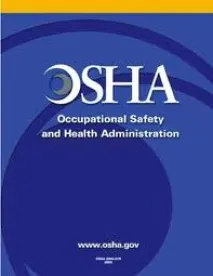A milestone has been reached in federal whistleblower cases: OSHA has investigated more than 3,000 cases in a fiscal year for the first time ever.
According to the agency, it took on 3,060 cases during FY 2014, 91 (3%) more cases than during FY 2013. OSHA administers the whistleblower provisions of 22 federal statutes.
OSHA did not disclose the number of whistleblower complaints it received in 2014 that were rejected after the initial screening and not investigated. However, a 2014 Bloomberg BNA study showed that in cases filed from 2011 through 2013 under the whistleblower provision of the Occupational Safety and Health (OSH) Act, only 41% passed the initial screening.
While the reasons for the increase are not clear, one explanation could be the elevated media attention given to large monetary awards and settlements. A Washington-based attorney who represents whistleblowers told Bloomberg BNA that punitive damage awards of $100,000 and more in Surface Transportation Assistance Act (STAA) cases and new Federal Motor Carrier Safety Administration (FMCSA) rules have encouraged drivers to bring claims if they are told to exceed legal driving hour limits.
Despite the new high in case filings, the chairperson of OSHA’s Whistleblower Protection Advisory Committee, Emily Spieler, said there had been predictions OSHA’s caseload would be boosted by the agency’s introduction of online filing for whistleblower complaints in late 2013, coupled with a U.S. Supreme Court decision in March on the whistleblower provisions of the Sarbanes-Oxley Act (SOX), holding that statutory protection extended to a public company’s private contractors and subcontractors.
The agency made determinations on 3,271 complaints in FY 2014, just one less than in 2013. A total of 25% were settled or went before an administrative or federal judge. Of these, just 64 (2%) resulted in a “merit” decision, a designation that means OSHA referred the complaint to a judge after the parties could not come to terms. OSHA dismissed 1,652 complaints (51%), while complainants withdrew 710 (22%) others, for a dismissal figure of 73%. Each of the two results was two percentage points higher than the comparable figure from FY 2013. In 99 (3%) of the outcomes, the cases were withdrawn by the complainant and re-filed in federal court in what is known as a “kick out” from administrative proceedings.
The bulk of the cases were safety-related, including 1,729 (57%) filed under the OSH Act’s anti-retaliation clause, Section 11(c). This is about the same number as a year ago. The figure may climb this year. OSHA Assistant Secretary Dr. David Michaels has indicated the agency intends during 2015 to lower the threshold for making judgments on whether to investigate a whistleblower case using a “reasonable cause” threshold instead of the current “preponderance of the evidence” benchmark.
Rounding out the top three types of cases were 463 brought under the STAA and 351 under the Federal Railroad Safety Act. The numbers represented an increase of 95 and four, respectively, over FY 2013.
The growth of STAA cases may have stemmed from a 2014 memorandum of understanding between OSHA and FMSCA, which put OSHA in the driver’s seat for handling cases in which commercial vehicle drivers alleged they were discriminated against for reporting safety issues and were seeking redress.
Of the whistleblower cases unrelated to safety, SOX complaints accounted for 145 cases, the fewest in a decade, while cases under the Consumer Financial Protection Act grew to 47 cases, up 68% from FY 2013.




 />i
/>i

